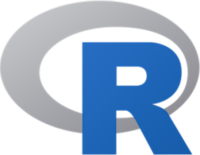Nexacu Powered by Lumify
Our R Programming data analysis courses are delivered by Nexacu, part of the Lumify Group. Nexacu consistently delivers high-quality, practical, instructor-led training courses across the Asia-Pacific region.



Our R Programming data analysis courses are delivered by Nexacu, part of the Lumify Group. Nexacu consistently delivers high-quality, practical, instructor-led training courses across the Asia-Pacific region.


Complete the form, and we'll get in touch, plus send you a course brochure.
R is an open source and free programming language that was developed for statistical analysis and production of high-quality graphics. It has long been popular among statisticians and academics who comprise part of the large, active user community behind R. This community has contributed over 15,000 packages that extend the base functionality of R, making it easy to implement a vast range of techniques for data manipulation, analysis, and visualisation.
An R programming language course is a structured learning program designed to teach you how to use R, a programming language widely used for statistics, data analysis, and data visualisation. R is powerful in statistical analysis, data visualisation, data manipulation, machine learning, predictive modelling, bioinformatics, and social sciences, as well as academic research.
In an R programming course for beginners, you can get a foundational understanding of the R programming language, R syntax and data types and objects.
In an Intermediate Level R programming course, you can learn data manipulation, basic exploratory data analysis, how to create customised data visualisations and basic modelling
In an Advanced Level R programming language course, learn how to run analysis more efficiently by creating your own functions. Explore control structures, loops and loop alternatives and tidyverse piping syntax. Learn to create visualisations with Ggplot2.
In the R Programming for Data Analysis - Machine Learning, you can learn to perform cluster analysis and create regression and classification models with random forests in R.
For basic proficiency, including understanding R syntax and utilising fundamental packages, you can expect to invest approximately 1–2 months of consistent study.
Is your goal to apply R to specific domains like data analysis, visualisation, or machine learning? If so, we recommend you plan for 3–6 months of focused practice.
Lumify Work R programming courses are delivered through Nexacu, which is part of Lumify Group. The training is not an R programming certification course. Instead, the courses help you earn micro-credentials that validate your technical skills.
Nexacu partners with platforms like Credly to issue digital badges for achievements, such as the "R Programming Series" badges, which confirm skills in data science, statistical analysis, Ggplot, Tidyverse, and R Programming.